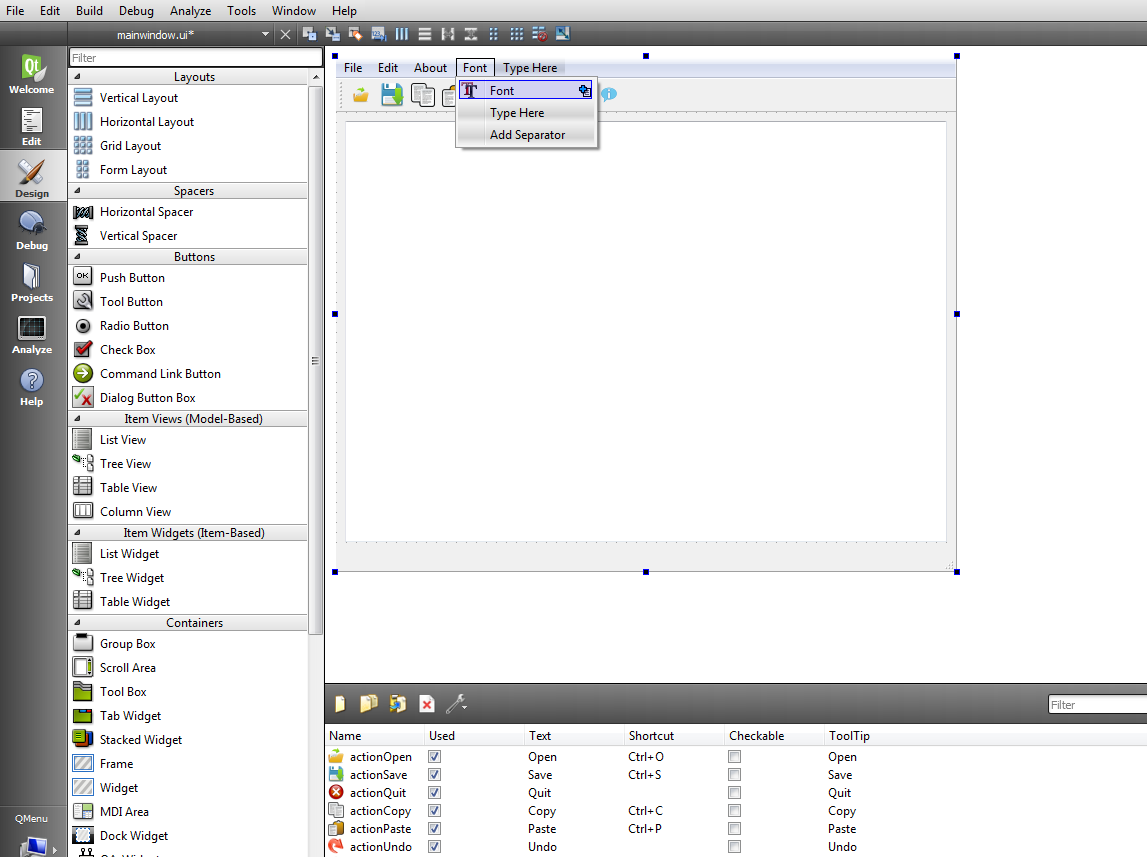Qt5 Public Slots
#define signals public #define slots /. nothing./ That is right, signals and slots are simple functions: the compiler will handle them them like any other functions. The macros still serve a purpose though: the MOC will see them. Signals were protected in Qt4 and before. They are becoming public in Qt5 in order to enable the new syntax. The current version, Qt 5, provides enormous modules, from threading to interface animations, to ease your pain when developing cross-platform applications. Starting with the basic concepts and fundamentals of Qt 5, Qt 5 Blueprints helps you get familiarized with the layouts and widgets of Qt as you build and debug a test application in Qt Creator. Qt5 comes with a huge number of widgets built-in, from simple text boxes to digital displays, vector graphics canvas and a full-blown web browser. While you can build perfectly functional applications with the built-in widgets, sometimes your applications will need a more.
This page describes the use of signals and slots in Qt for Python.The emphasis is on illustrating the use of so-called new-style signals and slots, although the traditional syntax is also given as a reference.
The main goal of this new-style is to provide a more Pythonic syntax to Python programmers.
- 2New syntax: Signal() and Slot()
Traditional syntax: SIGNAL () and SLOT()

QtCore.SIGNAL() and QtCore.SLOT() macros allow Python to interface with Qt signal and slot delivery mechanisms.This is the old way of using signals and slots.
The example below uses the well known clicked signal from a QPushButton.The connect method has a non python-friendly syntax.It is necessary to inform the object, its signal (via macro) and a slot to be connected to.
New syntax: Signal() and Slot()
The new-style uses a different syntax to create and to connect signals and slots.The previous example could be rewritten as:
Qt5 Public Slots App
Using QtCore.Signal()
Signals can be defined using the QtCore.Signal() class.Python types and C types can be passed as parameters to it.If you need to overload it just pass the types as tuples or lists.
In addition to that, it can receive also a named argument name that defines the signal name.If nothing is passed as name then the new signal will have the same name as the variable that it is being assigned to.
The Examples section below has a collection of examples on the use of QtCore.Signal().
Note: Signals should be defined only within classes inheriting from QObject.This way the signal information is added to the class QMetaObject structure.
Using QtCore.Slot()
Slots are assigned and overloaded using the decorator QtCore.Slot().Again, to define a signature just pass the types like the QtCore.Signal() class.Unlike the Signal() class, to overload a function, you don't pass every variation as tuple or list.Instead, you have to define a new decorator for every different signature.The examples section below will make it clearer.
Another difference is about its keywords.Slot() accepts a name and a result.The result keyword defines the type that will be returned and can be a C or Python type.name behaves the same way as in Signal().If nothing is passed as name then the new slot will have the same name as the function that is being decorated.
Examples
The examples below illustrate how to define and connect signals and slots in PySide2.Both basic connections and more complex examples are given.
- Hello World example: the basic example, showing how to connect a signal to a slot without any parameters.
- Next, some arguments are added. This is a modified Hello World version. Some arguments are added to the slot and a new signal is created.
- Add some overloads. A small modification of the previous example, now with overloaded decorators.
Qt5 Public Slots Game
- An example with slot overloads and more complicated signal connections and emissions (note that when passing arguments to a signal you use '[]'):
- An example of an object method emitting a signal:
Qt5 Public Slots Games
- An example of a signal emitted from another QThread:
- Signals are runtime objects owned by instances, they are not class attributes: